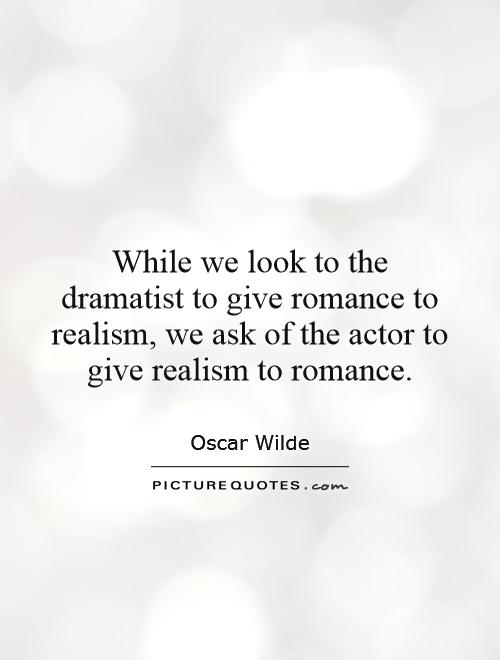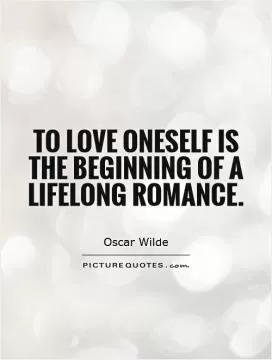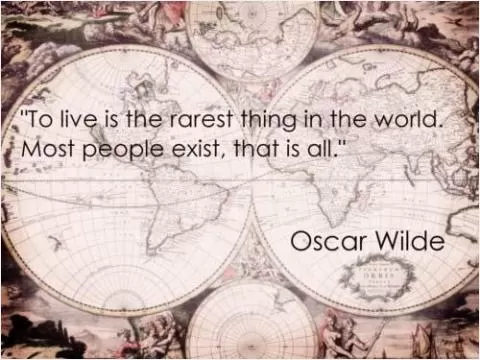While we look to the dramatist to give romance to realism, we ask of the actor to give realism to romance

While we look to the dramatist to give romance to realism, we ask of the actor to give realism to romance
Oscar Wilde, the renowned playwright and author, was a master at blending romance and realism in his works. His plays, such as "The Importance of Being Earnest" and "An Ideal Husband," are filled with witty dialogue, social satire, and larger-than-life characters that captivate audiences with their charm and humor. Wilde understood the importance of balancing the fantastical elements of romance with the grounded aspects of realism to create a truly engaging and relatable story.In Wilde's plays, the dramatist is responsible for infusing romance into the narrative, creating a world that is both enchanting and believable. Wilde's characters often find themselves in absurd situations, navigating the complexities of love, society, and morality with wit and sophistication. The romantic elements in Wilde's plays serve to entertain and delight the audience, drawing them into a world of elegance and intrigue.
However, Wilde also recognized the importance of realism in his works, understanding that in order for the audience to truly connect with the characters and their struggles, there must be an element of truth and authenticity. This is where the actor comes in, tasked with bringing realism to the romance that the dramatist has created. The actor must embody the character with depth and nuance, conveying their emotions, motivations, and inner conflicts in a way that feels genuine and relatable.
Wilde's plays are known for their larger-than-life characters and witty dialogue, but beneath the surface, there is a deep sense of humanity and vulnerability that the actor must bring to life. The actor must find the truth in the character's words and actions, allowing the audience to see themselves reflected in the struggles and triumphs of the characters on stage.












 Friendship Quotes
Friendship Quotes Love Quotes
Love Quotes Life Quotes
Life Quotes Funny Quotes
Funny Quotes Motivational Quotes
Motivational Quotes Inspirational Quotes
Inspirational Quotes